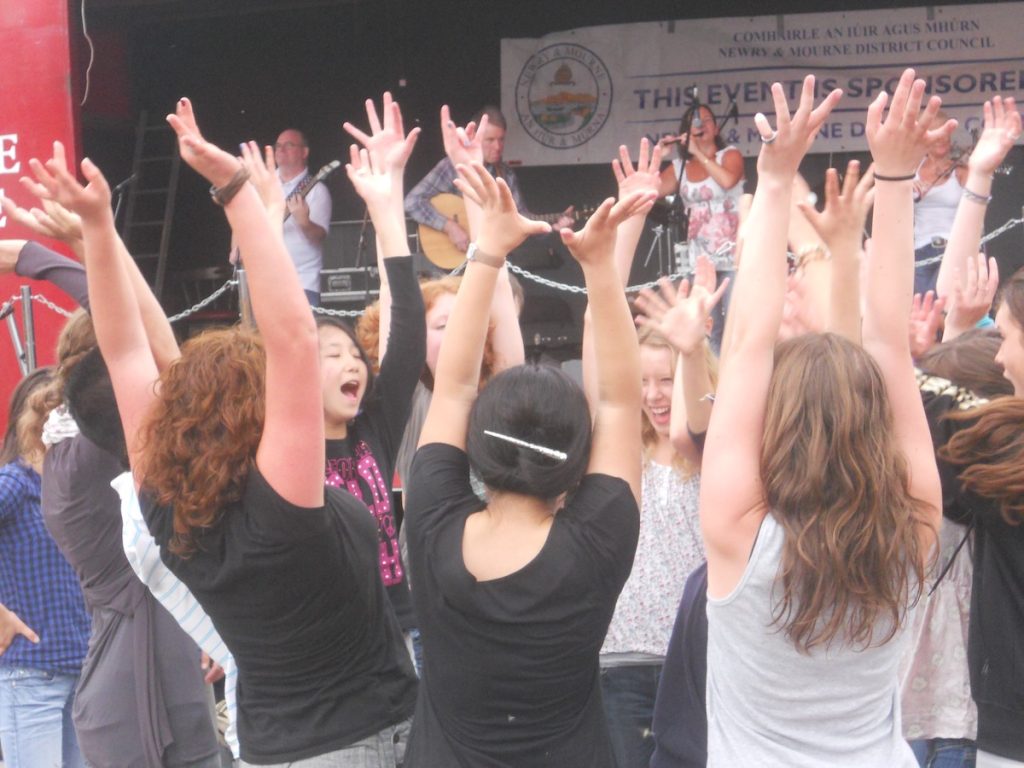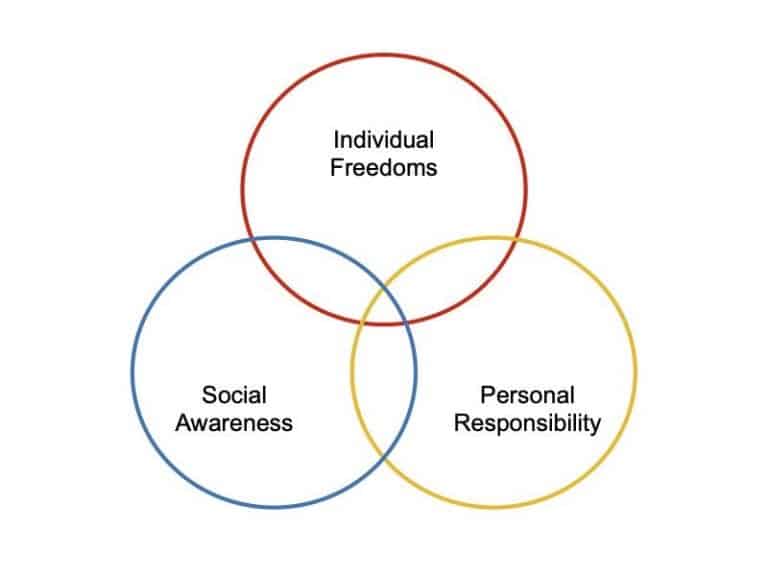Autumn is a good season to review what has happened in the summer before moving on to our next step.
There were two groups in two different locations.
To both groups we wanted to offer the opportunity to smoothen the hard experience of the pandemic, when children and young people were especially exposed to the risk of falling into anxiety, fearing for the future, retreating from human relations, giving instead a preference to digital interactions on social media.
Even if the purposes, the structure and guidelines of each programme were basically the same, each course developed a different quality.
The difference -I believe- is that in every course there are different human beings: tutors, students, host-families, helpers.
Those individuals and their social interactions are all distinctive factors of each experience and generate the most interesting and unique dynamics.
It is thus not surprising that two very different questions took shape in those two settings.
Community Building
One group was already well assorted and most of the students were familiar to one another. Their English and drama tutor was dealing well with their desire to be active and participative.
In our courses the typical start point is ‘getting to know one another’, when participants introduce themselves to the class. At some point the tutor asked a question that more or less sounded like this:
If you think of your family, what values could be related to keep the family united? What words come up to your mind that may show the bond amid the members of a family?
The students were between 14 and 17, quite young but mature enough to outline the most relevant values, words. The teacher wrote on the board what they were saying:
Together
feeling safe
respect
happy
love
acceptance
sacrifice
gratitude
help
support
The guy who mentioned ‘sacrifice’ also added “gratitude for the sacrifices that our parents do for us”. Every young person in the room nodded in agreement. This was absolutely sweet and quite touching!
What that young person expressed, shows that young people are often misrepresented by those who see them as “spoiled” or “disruptive” and overload them with negative judgements.
The next question in the class conversation revealed a critical point that we -as adults- should really consider. The teacher asked:
If you now think of a larger community, such as your city or even the whole country, what values, words can be related to that larger community?
All previous words were mentioned again…
Except two: sacrifice and love…
The teachers and I looked at one another, then we asked:
why are love and sacrifice not in the list of values that can keep together a larger community?
The answer of some students was in unison:
“Because we don’t know those other people. Why should we love them? Or make sacrifices for them?”
Cristal clear! And not solvable with a sermon about peace and love…
It is a question that grips at the moment the whole world and -in some situations- divides people in dramatic confrontations.
Although such a question might not have an immediate answer, there is hope that the experience of being in a foreign, friendly, welcoming and inclusive environment, helps them find new perspectives.
Learning other languages is a powerful means of widening understanding, embrace and appreciate one another’s culture.
In AEL we have the ambition to be a drop in the stream of reciprocal understanding, to contribute to a peaceful development of social relations.
Freedoms
The other group had a completely different setting, where the standards of facilities and professional tutoring are exceptional. The human elements -composition of the class and tutors- were quite different and the social dynamics evolved on a slightly different question, that related to freedoms.
We are in a country where individual freedoms are sacred, respected and protected over any other value. In principle freedom is limitless as per definition. In practice, is freedom really limitless?
Since the American and French Revolution, it is quite clear that freedoms do not necessarily mean the possibility of doing whatever one wants.
“Your right to swing your arms ends just where my nose begins”
It was Oliver Wendell-Holmes jr who reportedly said that sentence in a US Supreme Court a couple of centuries ago. It has become a sort of popular motto in the US.
The concept of freedom can be discussed for the next many eons, but Oliver’s simple, pragmatic statement provides an easy understanding of where the limit of individual freedom stands.
"Your right to swing your arms ends just where my nose begins "

Social Awareness
The main question in an educational social context is how to make a person aware of the presence of other noses, if they are not?
Some communities set in place loads of regulations, laws and punishments to enforce limits to the freedom of “doing what I like”.
In AEL we want to consider the reasons that may cause an antisocial tendency.
In the meantime we need to make sure that any glimpse of antisocial behaviours does not derail into serious bullying and abuses.
We never had such extremes behaviours (luckily) but we have had occasionally a very few pupils who didn’t have enough consideration for other people around them and for what is going on around them.
The most important step is to make them aware of the impact of their actions on others who live in the same social context, to allow them time to find their way and behave in respect of everyone around them.
In the end, we need to distinguish amid various level of disruption and find the appropriate ways to raise awareness rather than punishing.
In the large majority of cases simple initiatives -such as having one or more conversations- might be able to unlock the social awareness we want to achieve. This action is equivalent to ring a tea-bell, but you need to prepare bells of various sizes in order to reach the different level of hearing.. or, better, listening.
Personal Responsibility
There is an essential condition for such a liberal choice to restrain from punishments: we need to be honest to one another and with ourselves. If that honesty flows in human relations, we can speak and sort out any issue in a reciprocal understanding.
If we try to trick one another or if we want to break the common rules just because “I don’t care” or “I want to do what I want to do”, then the health of social interactions becomes undermined. This is not good for the others nor for those disrupting a certain environment.
So, freedom comes with a price tag: be honest to one another, be aware of the social context, develop some common sense and take into your own hands the responsibility of living with respect for other human beings, regardless their role, their age or the length of time we are together. Overall, be respectful of one another.

AEL Ethos

Back to the Future
Every road has smooth stretches as well as bumps and pot-holes (especially in Devon’s infamous country lanes… ); in every journey we see mild landscapes and wild scenarios: diversity is the wonder of life and I always enjoy when diversity appears.
The summer school 2023 yielded fruitful outcomes and inspired significant improvements for the next step.
and common values:Tradition and innovation is my favourite line of development in order to match at best our students’ needs and expectations.
The programme 2024 will continue to entail our ethos and common values: individual freedoms; reciprocal respect; social awareness; personal responsibility.
